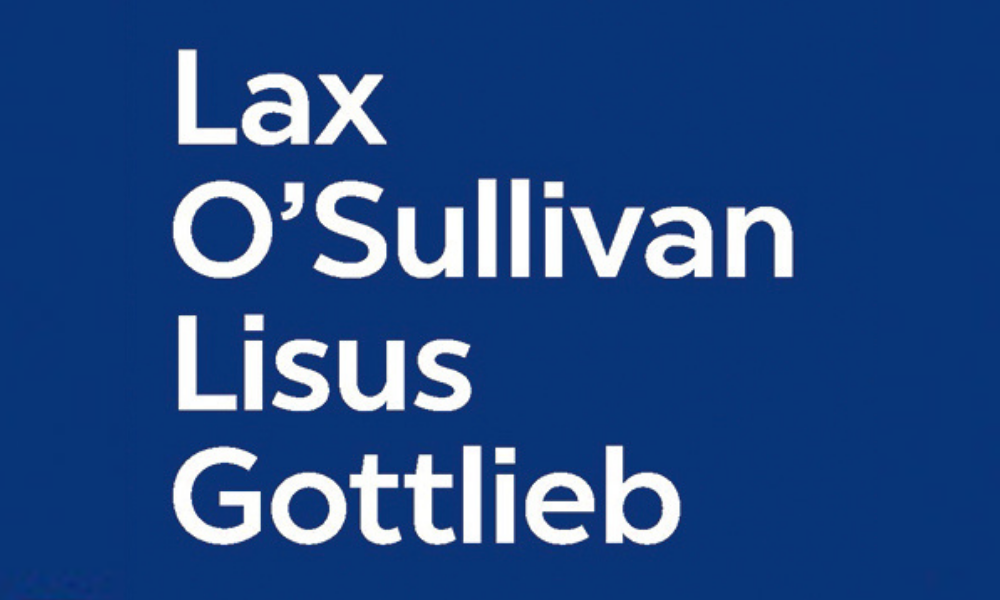All Rights Reserved: Reservation Clauses in Legal Communications
My first memory as a junior lawyer before I came to Toronto was a senior asking me to write a simple letter to opposing counsel. I wrote the letter the way I thought a lawyer should write. I filled it with dense language, countless defined terms and sprinkled in what I thought was the right balance of “heretofores” to give it the appearance of formality.
I ended my draft with a phrase I knew but did not understand: “we reserve all of our rights”.
The letter did not impress as I had hoped, and that reservation of rights landed me in the senior lawyer’s office for questioning. I was gently asked: what rights are you concerned we’re waiving? There was, of course, no answer because there was no concern that we were waiving any rights.
A reservation of rights is usually used to protect against the legal concept of ‘waiver’. Waiver occurs where a party to a contract or a proceeding takes a step that amounts to giving up a right or a defence.
Reservations of rights are common in the insurance context. In cases of questionable or uncertain insurance coverage, insurers may send a reservation of rights letter or a non-waiver agreement to preserve their right to deny coverage after they have investigated the claim. The insurers are making it clear that they intend to fulfil their obligations under an insurance contract, but may limit, or deny, the claim later. Reservation of rights letters can be lengthy and complicated documents intended to state the rights and defences that are preserved.
The phrase “we reserve our rights” finds its way into all sorts of correspondence. It is usually inserted into a letter to give the drafter comfort that they are not giving up some right that they may or may not know about. It is thought to be some sort of incantation that protects the drafter from harm that may be inadvertently caused by the letter. The reality is that the phrase may not be that useful or necessary.
The phrase often appears in correspondence between parties in contract disputes. Here’s an example:
Party A and B have a contract. A thinks that B did not perform the contract as expected.
A writes a letter to B explaining the manner in which A thinks the contract was breached. At the end of A’s letter, A writes: “we reserve all of our rights at law”.
B responds to the letter explaining that the contract was not breached. But because it appeared in A’s letter, B responds with “we also reserve all of our rights at law”.
There probably wasn’t a reason for either A or B to reserve any rights; they were just explaining the reasons a contract was or was not breached. No rights were at risk of being waived. The reservation was extraneous, but if it appears in a letter, it will appear in the response.
Making Waives: The Evolution of Contractual Rights Protections in Canada
In a contractual dispute, a party might think it has to add a reservation of rights because it fears that it could inadvertently waive a right it has under the contract. However, the law in Canada has developed to protect, in most cases, against the inadvertent waiver of contractual rights.
In 1994, the Supreme Court of Canada outlined the circumstances in which a party waives a contractual or procedural right. In Saskatchewan River Bungalows v. Maritime Life Assurance, the Court was asked to consider whether a life insurance policy should pay out when the policyholder didn’t pay the premium and the policy was not in force when the policyholder died. The family of the policyholder claimed that the insurer waived its right to timely payment of the premiums by its conduct and that the policy was still in place.
The Supreme Court set a stringent test for waiver, which requires that the party waiving has (1) full knowledge of rights; and (2) an unequivocal and conscious intention to abandon them.
More recently, the issue of waiver in a contractual setting was before the Ontario Court of Appeal.
In Jack Ganz Consulting Ltd. v. Recipe Unlimited Corporation, the Court of Appeal overturned a successful summary judgment motion. One of the issues was whether a party to a contract had waived its right under the contract by email. The party wrote an email that it was removing the ‘auto renewal’ term from the contract. The summary judgment judge found that the email amounted to waiver of the auto renewal term.
The Court of Appeal disagreed and held that the email did not amount to waiver. The Court focused on the stringent test for waiver of a contractual right. The Court wrote: “[a] party to a contract can forego reliance on a contractual right but only where the party making the choice has full knowledge of the right and makes the unequivocal and conscious decision to forego that right with full understanding of the consequences.” The Court of Appeal’s decision affirms the Supreme Court’s stringent test for unilateral waiver.
Deeds Not Words: How to Preserve Your Rights Without a Reservation Clause
The courts’ guidance on the stringent requirements for waiver is rooted in fairness. Contracts are fundamental to commercial relationships. Parties bargain for rights and obligations. Courts generally want to hold parties to their contracts and enforce the bargain. Courts will allow a party to waive a right if that party receives some consideration in exchange. Unilateral waiver without full knowledge of the consequences or any consideration would undo the contractual bargain.
It seems unlikely that a party can accidentally waive its rights under a contract by letter to the counterparty. A statement or position that is incongruent with the terms of the contract probably won’t amount to waiver because there isn’t a full understanding of what is being waived or the consequences of the waiver.
In that context, a reservation of rights is probably unnecessary and extraneous because an accidental or inadvertent waiver is not possible.
A cautious attitude is always a good starting point when assessing the words of your contract. Contracts will detail the rights and obligations that each party has, and it is important that parties act in a manner consistent with those rights and obligations. Saying that you are ‘reserving your rights’ while acting contrary to the contract probably does not have much meaning or serve as any sort of protection.
Some contracts require notices to the other party in certain circumstances or on the occurrence of certain events. It is important to know those notice periods and think about how those notice periods affect your actions. A reservation of rights is unlikely to be of much use if you don’t follow those notice requirements.
Generally, you should be comfortable that you probably won’t accidentally waive a contractual right. That would be inconsistent with the Court of Appeal’s guidance that the waiver must be made with full knowledge and understanding of the consequences of doing so. Having said that, it is generally best to read your contract and act consistently with the rights and obligations as described, which might mean you would never have to ‘reserve your rights’.
To Be Precise: When Reserving Rights is Necessary
While it should be easy to strike the phrase from the lexicon between parties in contractual squabbles, it is and may remain a perceived safety net. Perhaps it is easier to offer a warning about the ‘better safe than sorry’ approach: a vague, blanket reservation of rights may not always protect you.
There may be times when a ‘reservation’ of a defence is necessary. For example, you may not be subject to the jurisdiction of an arbitrator but still want to tell the other side that the merits are weak. In that case, saying that you reserve your right to challenge jurisdiction while making statements about the merits can be useful and maybe even necessary.
Where you should tread lightly is using a blanket reservation that is too vague. The U.K. Technology and Construction Court recently warned in LJH Paving v. Meeres Civil Engineering that a vague reservation is an ineffective one. A party challenged the jurisdiction of a construction adjudicator and wrote a long letter, which included this general reservation: “reserves its rights to maintain its position both on the matters submitted below and on further issues which either may have arisen and are not addressed herein”. The reservation appeared to reserve rights that the party did not even know about. The Court held that the general reservation was “so vague as to be ineffective”.
The takeaway is this: if you intend to include a reservation of rights in a letter, you should consider what right you are reserving and why it is necessary to reserve. In doing that analysis, you may identify more precise language that will serve your interests rather than a blanket “we reserve our rights”. Ideally, you may conclude that the phrase is unnecessary because there is nothing to reserve.
Final Thoughts
Reservation of rights will continue to be used where they are necessary: insurers will send reservation of rights letters, lawyers will preserve defences while answering opposing counsel’s letter on the merits of a dispute. But parties to a contract should generally be confident that it is difficult to inadvertently waive a right in the contract and a reservation of rights is probably unnecessary in most cases.
Every time that you have the urge to reserve a right, you should ask yourself that question that I faced that day in the senior lawyer’s office: what are you concerned you’re waiving? Parties to a contract drafting a letter to a potentially adverse party should be confident that their letter will read better without complicated language or legal magic words. Plain language is always best.
Because a reservation of rights shouldn’t be necessary in most circumstances, its removal should generally go unnoticed! Legal writing trends towards reducing the use of ‘magic words’ that are relics of a different time when legal concepts were designed to be impenetrable to laypeople. Dropping the use of ‘reserving rights’ in most contract disputes pushes us closer to a world in which we use simple, plain language in our legal writing.
***
 Brad Vermeersch practises complex commercial litigation, with a particular emphasis on litigating high-stakes, multiparty infrastructure disputes. He also represents clients in a broad range of matters including contractual disputes, class actions, administrative law, regulatory investigations, and appeals. Brad is highly skilled at developing a trial strategy and has experience at all levels of court in Ontario, as well as in the courts of Alberta, BC, Newfoundland and Labrador, the Federal Court, and in commercial arbitration. Brad’s business and financial acumen give him a critical edge in difficult cases that involve sophisticated financial concepts or challenging damages.
Brad Vermeersch practises complex commercial litigation, with a particular emphasis on litigating high-stakes, multiparty infrastructure disputes. He also represents clients in a broad range of matters including contractual disputes, class actions, administrative law, regulatory investigations, and appeals. Brad is highly skilled at developing a trial strategy and has experience at all levels of court in Ontario, as well as in the courts of Alberta, BC, Newfoundland and Labrador, the Federal Court, and in commercial arbitration. Brad’s business and financial acumen give him a critical edge in difficult cases that involve sophisticated financial concepts or challenging damages.





